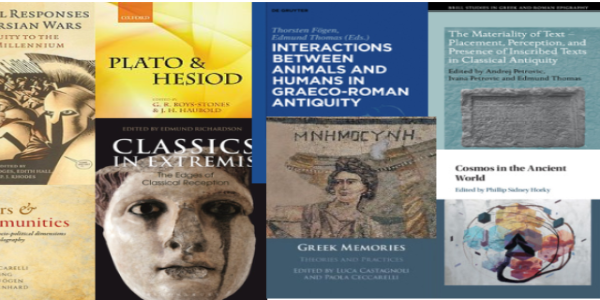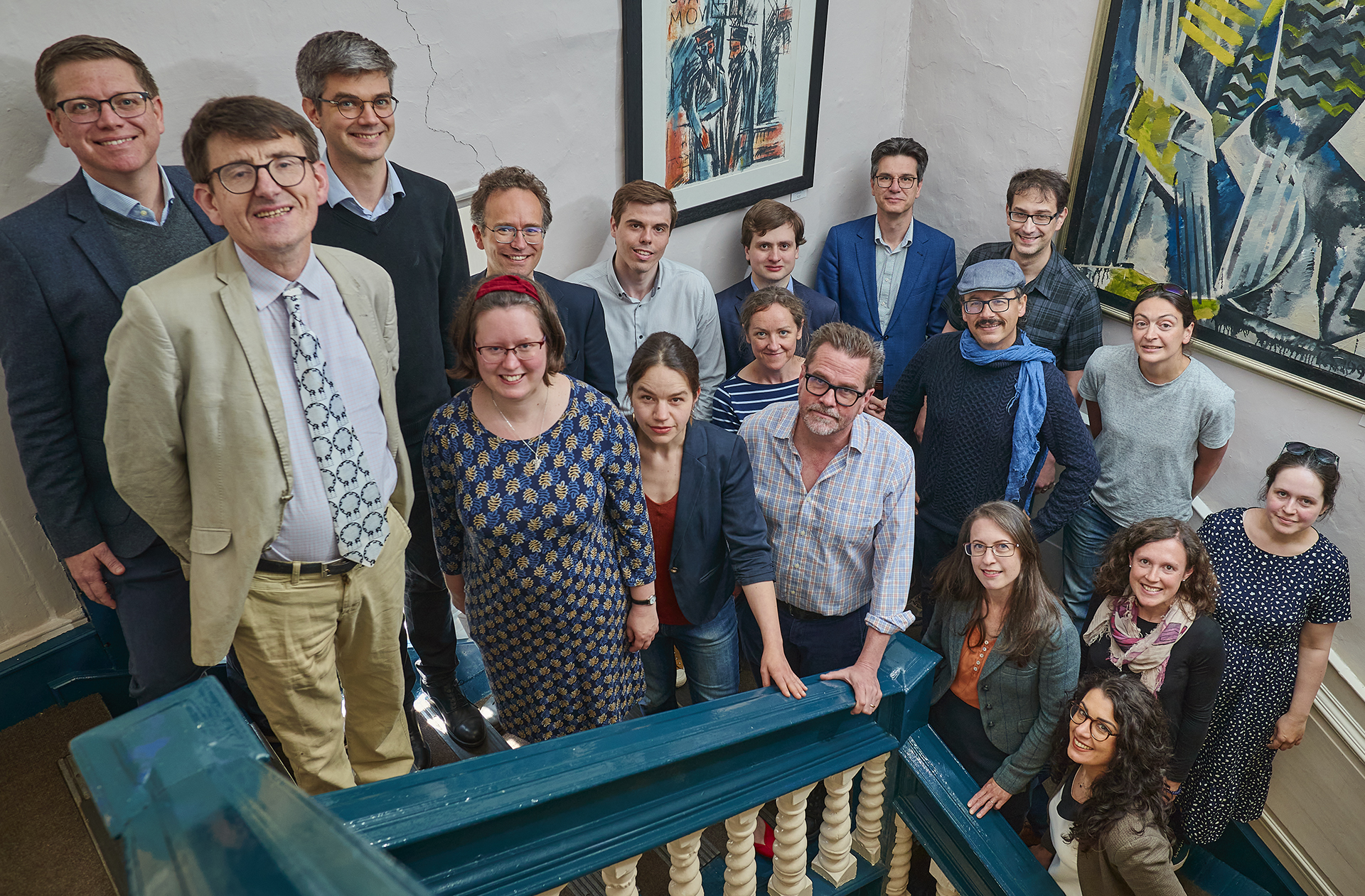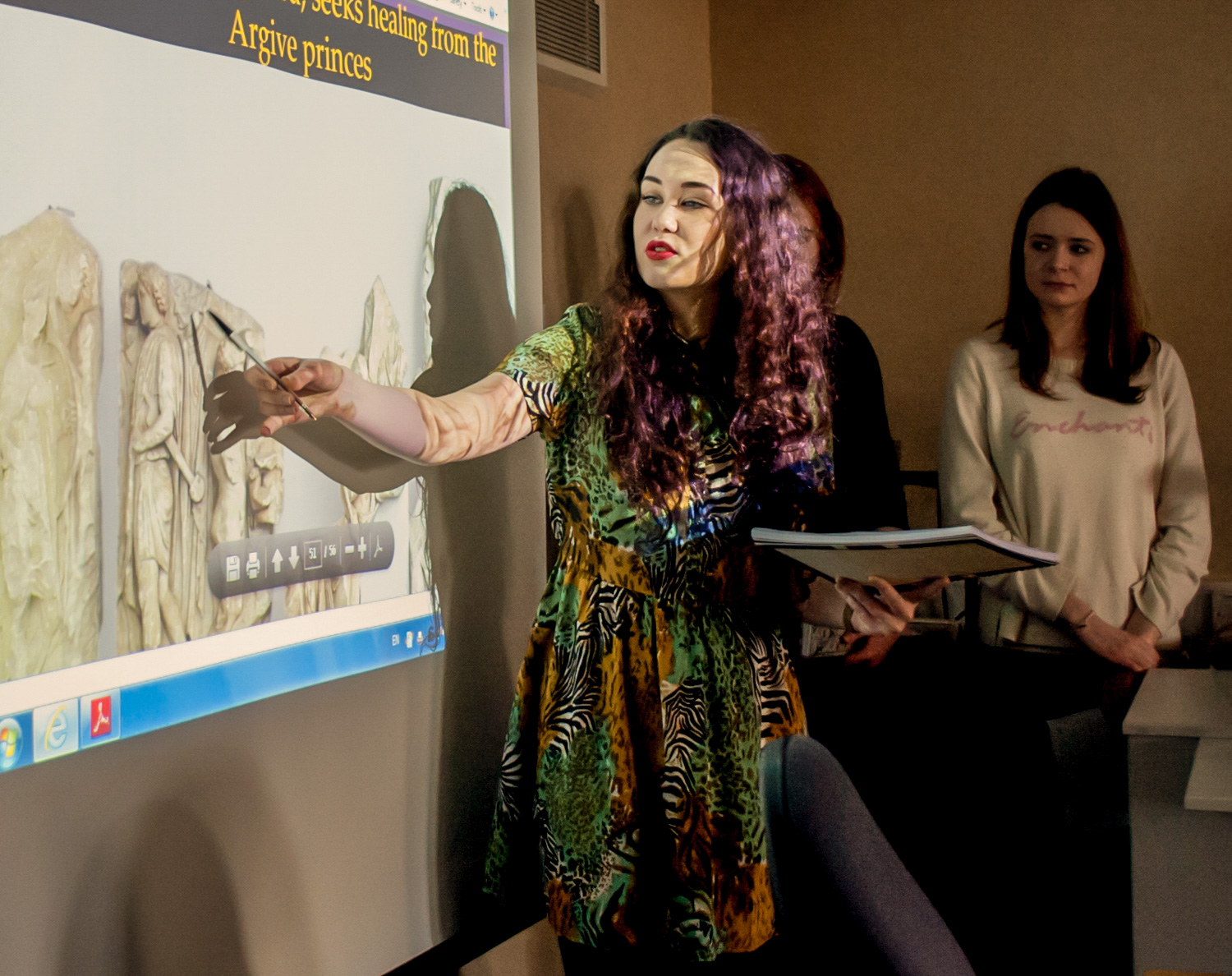Annual Research Theme

The Department’s Annual Research Theme encourages the exploration of innovative subjects emerging at the intersection of two or more members of research staff working in relatively diverse areas, and aims to be an engine for creating new agendas through fresh subdisciplinary collaborations. We normally reserve a number of slots from the Department’s Research Seminar for the theme, and provide funding for a dedicated international conference. The Research Theme is ultimately directed towards publication, often in association with postdoctoral researchers, visitors and graduate students. A series of edited collections has appeared with OUP, CUP, de Gruyter and Brill.
Annual Research Theme 2024/25: Aristotle Beyond the Academy
Conference: Explorations in the Public Reception of Aristotle (Durham, 26 and 27 March 2025).
There will be sessions on Literature and Art, Race, Politics, Rhetoric and Poetics. Confirmed speakers include: Sara Monoson (Northwestern), Fran O'Rourke (UCD), Margaret Doody (Notre Dame), Henry Stead (St Andrews), David Bullen (Royal Holloway), Richard Toye (Exeter), Hatice Nur Erkizan (MUĞLA), Ashley Lance (Cambridge), Christopher Anaforian (St Andrews), Patrice Rankine (Chicago), Rhiannon Easterbrook (ICS) and Natalie Earl. We will also be joined by novelist Margaret Doody (Notre Dame).
Seminars
16 October 2024: Edith Hall (Durham) Aristotle in British Debates on the Constitution, Slavery, and Women
6 November 2024: Sophia Connell (Birkbeck) Aristotle, analytic philosophy and the birth of virtue ethics
11 December 2024: Alessandro Vatri (Durham) Aristotle and the Orators in Margaret Doody's Fourth-Century Athens
21 May 2025: Rory McInnes-Gibbons (Durham) Aristotle's Masterpiece, a seventeenth-century sex manual
Previous annual research themes:
- Syriac Studies (2023/24)
- Classical Presences in the North East (2022/23)
Find out more
Publications
Read the latest books written and edited by colleagues in our department.
Meet our staff
Learn more about the work and research specialisms of our colleagues.
Postdoctoral research funding
Find out about fellowship and scholarship opportunities to undertake research at Durham.
Events and seminars
View our events calendar for the latest research seminars and workshops.


/prod01/prodbucket01/media/durham-university/departments-/classics-and-ancient-history/47302-1-3941X1553.jpg)
/prod01/prodbucket01/media/durham-university/research-/research-institutes/institute-for-medical-humanities/books-2241631_1280.jpg)
/prod01/prodbucket01/media/durham-university/departments-/classics-and-ancient-history/Classics1611Jun-05-2023.jpg)


/prod01/prodbucket01/media/durham-university-business-school/Durham-Cathedral-drone-shot-.png)
/prod01/prodbucket01/media/durham-university/departments-/classics-and-ancient-history/59377-1.jpg)

